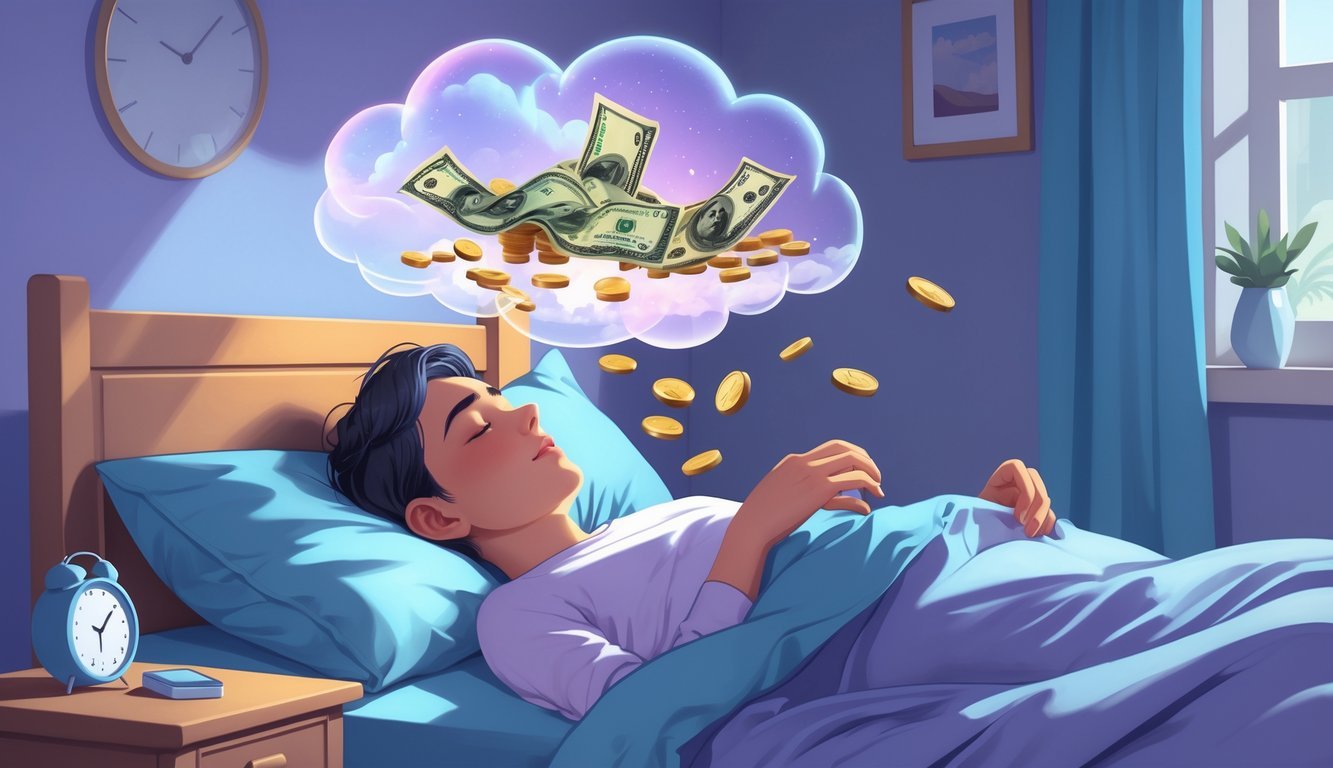Physical Address
304 North Cardinal St.
Dorchester Center, MA 02124
Physical Address
304 North Cardinal St.
Dorchester Center, MA 02124
Dreams of losing money indicate underlying insecurities or fears, often reflecting anxiety about personal stability and financial control, prompting self-reflection on choices and values.

Dreaming about losing money can really throw you off, can’t it? Usually, these dreams point to something deeper bubbling up in your life.
Most of the time, losing money in a dream means you’re worried about losing control or facing a challenge—especially with your finances or personal stability. These dreams reflect how secure you feel, and honestly, sometimes they say more about your emotions than your bank account.
Sometimes, losing money in a dream shows you’re afraid of making mistakes or losing something that matters.
Your mind might be nudging you to slow down and think through your choices.
If you pay attention to these dreams, you can get a clearer sense of your own fears and feelings.
Maybe you’ll feel a little more in control in your day-to-day life, too.

Dreams about losing money often come from what you’re feeling about your life and finances.
They connect to your emotions, your fears, and sometimes how much you value yourself.
It’s not just about the cash—these dreams dig into your confidence and the things that worry you.
When you lose money in a dream, it often means something important about your energy or self-worth.
Money stands for value or power in your life.
Losing it might mean you feel like you’re losing control or something you care about.
You might also feel guilty or regretful.
Sometimes, you’re just replaying choices that made you feel like you wasted effort.
These dreams might be your mind’s way of telling you to care more for your own needs.
Your dreams about losing money usually come from subconscious thoughts.
They point to anxiety or fear about losing something valuable—sometimes it’s money, sometimes it’s something more emotional.
Maybe you’re feeling insecure about your confidence or doubting if you can handle what’s coming.
The dream could be your mind’s way of telling you to look at these feelings before they mess with your daily life.
It’s how your brain works through stress and emotion.
Dreams about losing money often tie straight to your financial fears.
If you feel stressed about money or instability, your dreams might replay those worries as a warning.
This kind of dream shows you’re worried about money slipping away or not being ready for tough times.
It might be time to look at your finances and make a plan.
Paying attention to these dreams could help you act before things get out of hand.

Dreams about losing money can point to important lessons about how you handle what you have and what really matters to you.
Often, these dreams push you to look at your choices, your confidence, and how you handle changes that affect your life.
If you dream about losing money, it’s a chance to think about what’s most important.
Are you focusing too much on material things or chasing financial success?
Sometimes, these dreams are a sign that your spending habits or material wants are taking over.
Take a look at your financial decisions.
Is your need for security stressing you out or making you afraid of losing?
Let the dream remind you to balance your goals with what actually brings you joy.
A dream journal might help you spot patterns about money and values.
Money in dreams often links to how you see your own success and self-worth.
Losing money can show you’re feeling insecure or not in control of your life or finances.
It’s a great time to ask yourself if you’re measuring your worth only by your bank account.
Sometimes, these dreams want you to notice your talents and achievements outside of money.
Real power comes from confidence and personal growth, not just cash.
Dreams about financial loss can also mean you need a spiritual or emotional shift.
They suggest letting go of old fears about money and trusting that abundance and prosperity can show up in other ways.
Maybe focusing less on material wealth opens up new chances for you.
Losing money in a dream can sometimes mean you’re gaining something deeper—like spiritual growth or a better sense of what really gives you power and control.

Dreams about losing money usually tie into feelings of loss, control, and whatever’s going on in your life right now.
The meaning can shift depending on what’s actually happening with the money in your dream.
If you dream that someone takes your money, you might feel vulnerable or like someone’s messing with your sense of security.
It could mean you’re worried about losing something important or feeling powerless.
Finding money in a dream usually means you’re about to gain or recover something in real life.
It could be confidence, resources, or even a solution to a problem.
Spiritually, losing money might show you’re afraid of losing your personal value or self-worth.
It’s a nudge to look at how you see yourself beyond just things or money.
Some folks think dreaming of losing money is a test of faith or a push to focus on blessings that aren’t material.
It might be encouraging you to lean more on spiritual strength than on cash.
Dreaming about losing money usually brings up emotions like anxiety and fear.
You might feel out of control or worried about your future or your financial stability.
If you dream about losing money and then getting it back, you might be dealing with some real-life challenges.
This kind of dream often shows that you’ve got resilience and a sense of hope that things will work out.